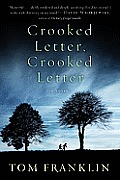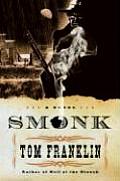
For years I've regaled audiences around the country with my "first date" story. Perhaps you've heard it? Conservatively, I've probably told the story 300 times in more than a dozen states, to audiences as intimate as 10 or 12 and as large as several hundred. This includes book tour events, library appearances, readings at colleges or other schools, interviews, class visits, book clubs, writing conferences, prisons, youth rehabilitation centers, not to mention groups in bars (perhaps the widest demographic of all). I've got the story's timing down — I can make it last from a couple of minutes to nearly half an hour — and I know when laughs will come, when the women will go, "Awww" and cock their heads.
In the story I'm 16 and appear foolish and sad, a lonely kid who finally gets a date to the drive-in movie only to have the girl ask him to take her instead to visit her boyfriend because she says she's pregnant (she wasn't) and her parents wouldn't let her see him. I did this, and then drove to the drive-in alone, paid five dollars per carload, parked my Toyota as inconspicuously as I could, and when somebody I knew pulled in behind me, I put a blanket over my right hand and held it up beside my head as if it were my date. People laugh as I tell it, as I stand there with my right arm out and bent at the elbow, fingers in the rough shape of a girl's head. "Ironic," I say (unless it's a high school audience), "because this very hand had been my date my entire life," waiting for them to catch the joke, begin to laugh. You should write that, people would say.
And I tried. I used it in a failed story called "Lust." I tried it as an essay and floundered. Trouble was, I'd told it so many times it had become an oral story, one I'd never do justice to on the page. It had become a raconteur's breezy oft-recited anecdote, not live material that could surprise me, with doors I could enter. Try as I might, I couldn't type my funny first date story into being funny, no matter how many times or ways I rearranged the words.
In the meantime, I was writing a novel called Crooked Letter, Crooked Letter. One of its two main characters, Larry Ott, had a lot in common with me. We were both mechanics' sons; we both loved Stephen King books; we both loved to catch reptiles and amphibians; we grew up in similar houses and lived on similar properties, with barns and tractors and chickens. As I wrote, things that had happened to me kept happening to Larry. Like me, Larry had a monster mask he wore to school on Halloween. Girls noticed Larry as they had noticed me. He was invited, as I had been, to be part of a haunted house. We each got our own room to haunt. We frightened girls and couples with children, me in the past and Larry on the page, for the whole night and came out without our masks on, proud and flushed with success, ready to be invited to the after party, only to be ignored by the other ghouls and monsters and to leave, finally, alone. And as I wrote, more and more connections grew between Larry and me, including Larry's "date" to the drive-in.
 Thankfully, my real-life date didn't disappear forever as Larry's does, and my night was only humiliating, eventually rewarding me with a good story to tell. On the other hand, Larry's date to the drive-in defines his life, and there's nothing funny about it.
Thankfully, my real-life date didn't disappear forever as Larry's does, and my night was only humiliating, eventually rewarding me with a good story to tell. On the other hand, Larry's date to the drive-in defines his life, and there's nothing funny about it.
Which addresses one of the questions writers confront: How do I incorporate my own autobiography into fiction? As writers, we have chiefly our own experience to draw from. So how do we revisit these experiences and recast them so they leap up and spring onto the page in an apt, meaningful way? I have other memories from my past that, during the course of the writing, surprised me by wanting to be used. For example: one morning as we left for school — our father drove us that year, in his Ford pickup — we noticed a woman and her daughter hitchhiking. This was far out in the country, a freezing January day, and we gave them a lift, six of us in the crowded cab. I remember that they smelled like wood smoke, realizing they must live in a house heated only by a fireplace. For several days they were there, and we gave them rides. Another time, another freezing day, as my mother drove us home, we noticed two children huddling along the road, going the other way. They didn't have coats. My mother took me and my siblings home, put two of our old coats in the car and drove back. I didn't know I'd be remembering these events 30 years later, but I did. In the writing they came back to me to be relived, and lived by Larry.
I have other memories, of course, that I've forgotten to remember, and I wonder if, how, and where they'll insert themselves, what meaning there is to make of them. Because as I bumble through this very real life I'm leading now, with its bright mess of children and students and books and writing, I seek for meaning when there doesn't seem to be any. I think we all do this: look into the shards of the past to create an arc, shape a narrative, find meaning, which will mean that life is meaningful. It's an amazing thing when, in the flux of a disorderly life, a connection reveals itself to me and I understand what that monster mask means. Those hitchhikers. When I can open the door to my funny first date story and find there not easy humor but sadness and mystery, and walk through that door, and keep walking.